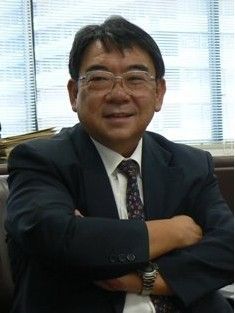Japan's new China envoy revealed
 0 Comment(s)
0 Comment(s) Print
Print E-mail China Daily, October 6, 2012
E-mail China Daily, October 6, 2012
Japanese media named its country's new ambassador to China on Friday, an appointment observers said is aimed at easing the standoff with China amid tensions concerning the Diaoyu Islands.
 |
|
Masato Kitera [file photo] |
Japanese Deputy Chief Cabinet Secretary Masato Kitera, 59, is expected to be appointed by the Japanese government as the new envoy, Kyodo News reported on Friday evening. The appointment has not yet been officially confirmed.
Shinichi Nishimiya, who was due to replace Uichiro Niwa, the current Japanese ambassador to China, died on Sept 16 after collapsing in Tokyo.
His death came only days after his appointment.
Attention has been mounting over Tokyo's selection of potential candidates, and little authorized information about Kitera is available.
A veteran diplomat in the same vein as Nishimiya, Kitera has been director general for African affairs at Japan's Foreign Ministry, and has served at Japanese embassies in France and Thailand.
Given the deteriorating ties with China, Tokyo has taken great pains to select a suitable candidate, Japan's NHK Television reported.
Observers said the appointment of Kitera, a key member of the Japanese cabinet, demonstrates Tokyo's desire to better deliver their intentions for dialogue to Beijing.
Yang Bojiang, a professor of Japanese studies at the University of International Relations in Beijing, said Kitera is expected to do a better job than his predecessor in enhancing bilateral political dialogues.
Niwa, an experienced entrepreneur in Japan before his mission to China, reflects some of the country's interests in China, and his role in deepening bilateral economic and trade ties has been "undeniable", but he has not done as expected by Tokyo in delivering political messages, Yang said.
Niwa warned in June that Tokyo metropolitan government's "purchase plan" would cause "a grave crisis in Japan-China relations".
His remark was heavily criticized by both the ruling and opposition parties for "expressing differing views".
As a versatile diplomat, Kitera's appointment also lays out the future blueprint of China-Japan ties, because the two countries are taking a greater role in the global arena in fields of both cooperation and diplomatic spats, Yang said.
Japan stole the Diaoyu Islands at the end of the Sino-Japanese War (1894-95). Key declarations following World War II, including the Cairo Declaration, returned the islands to China.
Japan's government announced on Sept 10 a final decision to "purchase" some of the islands in the East China Sea, a move that put bilateral ties into a sharp standoff.
Protests erupted across China and the diplomatic deadlock is threatening trade ties between Asia's two biggest economies.
Japan's hardline stance over the island dispute is hampering its ambassadors' efforts to promote economic diplomacy between the two countries, analysts said.
As deputy director of Japan's Economic Affairs Bureau, Kitera maintained Japan's two-year ban on beef imports from the United States over health concerns.
Kitera has a profound experience in handling affairs concerning China, and he enjoys a good reputation for his capacity for reconciliation in the countries where he has worked in, NHK said.
Japan's Nikkei Shimbun newspaper said the potential candidate needs approval from the Chinese government, and the procedure for sending the successor to his new office will not be completed until November.





